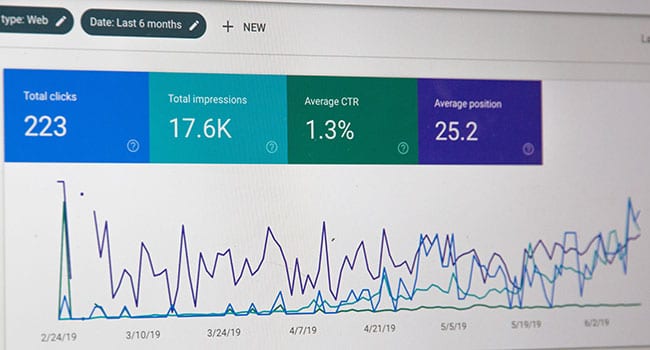 Building an online audience takes time. And as you start to grow online and engage with your audience more and more, you will need to build a customer persona.
Building an online audience takes time. And as you start to grow online and engage with your audience more and more, you will need to build a customer persona.
When you create a customer persona, you’re putting yourself in the shoes of your customer. You’re learning about their habits, behaviours and interests.
Once you figure all of this out, you will be able to market to them correctly.
You go through this whole process so you can earn more customers. If you know how to speak to them, you can help solve their problems and help with their pain points. You will keep them more engaged, create more raving fans and get more referrals.
So take some time and start to build your customer persona with some of the strategies I use with my clients.
Do your research
Now that you have customers, who are they?
This is what I call learning your customer base. And you want to know a few key things:
- What is their average age?
- What is their average income?
- What are their interests?
- What are their activities?
- Where are they located?
- What is their buying behaviour (late at night, online, only during a sale)?
A lot of this information is found through your website analytics and your social platform analytics. You can even compare month to month – or really dig deep into one specific area.
On your social platforms, research the people who are engaging and interacting with your brand. The great thing about this is that these people might not be customers yet, but once you can understand who is interacting with you, it’s easier to speak directly to them. And now you can start serving them and eventually they become a customer.
If you want to dig deeper, you can send out surveys (through Survey Monkey) if you have enough customers or prospects, finding out some supplementary information. Why do they buy from you? What products do they love? That sort of thing.
Identify your customer pain points
This is an important one. If you can find out what your customers’ biggest potential roadblocks are, you can share with them how you can solve their challenge.
As you grow your customers online, you will start to know these pain points through engagement, feedback and questions.
That’s another benefit of online platforms: they allow instant feedback from your audience. And that becomes so important to have as you grow.
Identify your customer’s ideal outcome
This is when you really have to get into your customers’ heads. You have to imagine that you are them and try to paint that ideal life.
Here’s an example:
Persona: Entrepreneurs who use IG and FB for business.
Ideal outcome: I want my social platforms to have consistent posting, great content, researched articles and modern graphics. I don’t have time or desire to be a social media expert, so I want to hire the experts. I just want to see the monthly reports.
Personality traits derived from above: Customer values time and outsourcing, puts importance on social media but doesn’t want to learn the intricate details, values reporting, research, wants an elegant, classy look. Pinks, blacks, golds, whites.
That is their ideal social platform outcome. Consistent content, modern look and real articles. From there, you can speak directly to those traits and promote the solution.
When you’re speaking to your online audience (in advertising or posting), don’t use buzzwords or corporate jargon – instead, speak directly to one of your customer personas.
According to Hubspot, you should create one key marketing message for each customer persona.
Answer the question, “How does your brand help this specific persona solve their problem and achieve their outcome?”
Try to answer that in one clear sentence. That becomes the guide to your online marketing efforts for that persona.
And once you build personas, you can always revisit them and make small adjustments to understand your customer even more. And that will make your online marketing efforts even more effective.
Donita Fowler is an online marketer who supports entrepreneurs in their quest to be the boss of their online platforms. Visit Donita’s website https://www.interestmarketing.ca or follow Donita on Instagram to learn more.
The views, opinions and positions expressed by columnists and contributors are the author’s alone. They do not inherently or expressly reflect the views, opinions and/or positions of our publication.


